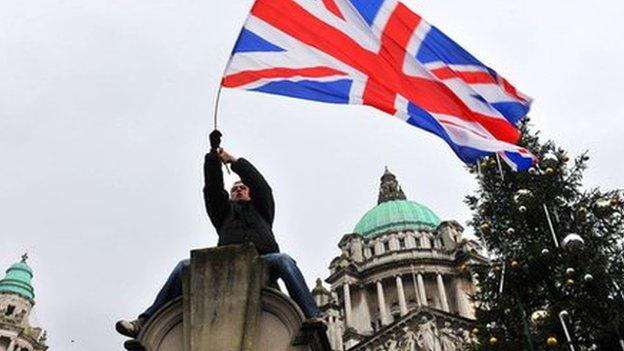Stormont House agreement addresses several key issues
- Published

The agreement addressed a number of contentious issues
The Stormont House negotiations tackled a number of contentious issues.
Three - flags, parades and the past - were inherited from the failed talks chaired by the US diplomat Richard Haass a year ago.
Northern Ireland's attitude to UK-wide welfare reforms had become an increasingly difficult stumbling block for the power-sharing executive in recent months.
The stand-off over welfare reform had, in turn, raised serious questions about whether Stormont could balance its budget and if changes needed to be made to the power-sharing institutions to make them more stable and effective.
Besides this, the negotiators confronted the Northern Ireland economy's heavy reliance on the public sector and the challenges posed by the need to create more private sector jobs.
On welfare reform, the executive parties have agreed to introduce the UK benefit changes, but to pay for flexibilities and "top-ups" from their own budget.
Sinn Féin - which has long been opposed to the welfare changes - argues this will mean no Northern Ireland claimants should lose out.
The Treasury had levied fines on Northern Ireland because of its delay in implementing welfare reforms. Some of these fines will still be paid, but will be reduced if Northern Ireland moves ahead with the changes quickly.
Corporation tax
On rebalancing the Northern Ireland economy, the UK government has promised to devolve powers over corporation tax to the Stormont Executive.
This will enable Northern Ireland to compete with the lower rate of corporation tax south of the Irish border in trying to attract foreign investment.
However, any reduction in corporation tax will involve a cut to Stormont's block grant.
Alongside the attempt to attract more foreign investment, the Stormont executive is expected to embark on a major programme of public sector redundancies, paying off thousands of civil servants. The pay-offs will be funded via a £700m government loan.
On the budget, the Treasury is providing £500m to fund shared and integrated education projects over the next 10 years, as well as £350m in loans for other infrastructure schemes over the next 4 years.
Troubles legacy
On dealing with the legacy of the Troubles, a number of new agencies are being created.
The Historical Investigations Unit will examine unsolved murders carried out during the Troubles.
The Independent Commission on Information Retrieval will provide an avenue for families to learn more about the fate of their loved ones.
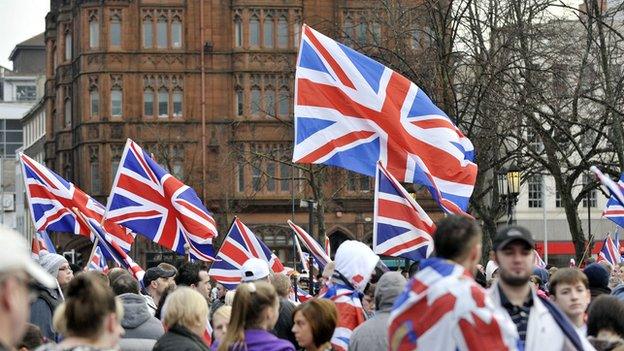
Less progress has been made on the issue of flags
Perpetrators, or others, with knowledge of killings during the Troubles will - if a family gives permission - be able to give the commission information on the basis of limited immunity from prosecution.
Less progress has been made on two other issues inherited from the Haass talks.
The UK government is proposing that powers over parading should be devolved to the Northern Ireland Assembly and fresh legislation should be drafted.
However, there is no firm agreement on a replacement to the quango which currently rules on marching disputes, the Parades Commission.
Flag flying
Disputes over flag flying, which led to serious rioting in the greater Belfast area in 2012 and 2013, also remain unresolved. The issue will be passed to a 15-strong commission for further discussion.
So far, as the system of government at Stormont is concerned, it's suggested the number of government departments should be cut from 12 to nine.
The number of MLAs at Stormont will be reduced from 108 to 90 by 2021.
It is also planned that those politicians who do not want to join the power-sharing government should - if their parties are strong enough - be entitled to form an official opposition.
However, Stormont's cross-community voting system - which has made it difficult to take decisions on contentious issues such as welfare reform - remains in place.
- Published23 December 2014
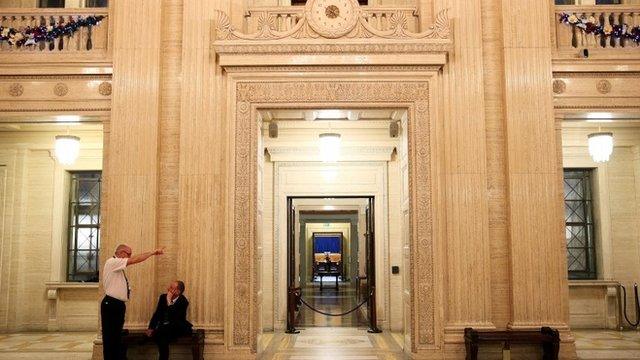
- Published23 December 2014
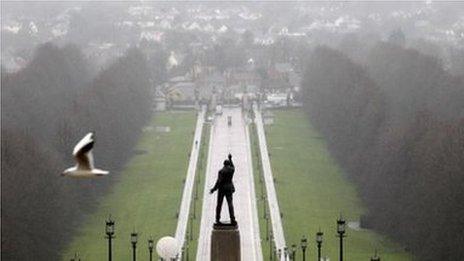
- Published19 December 2014
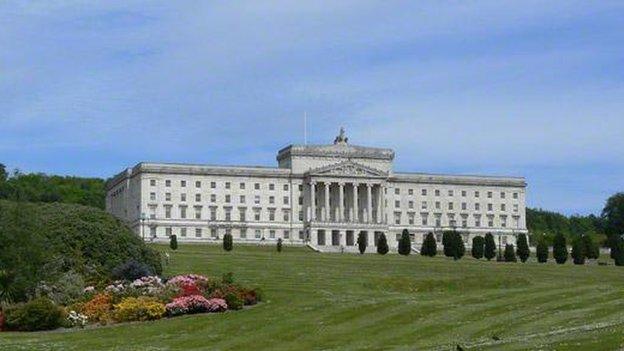
- Published12 December 2014
